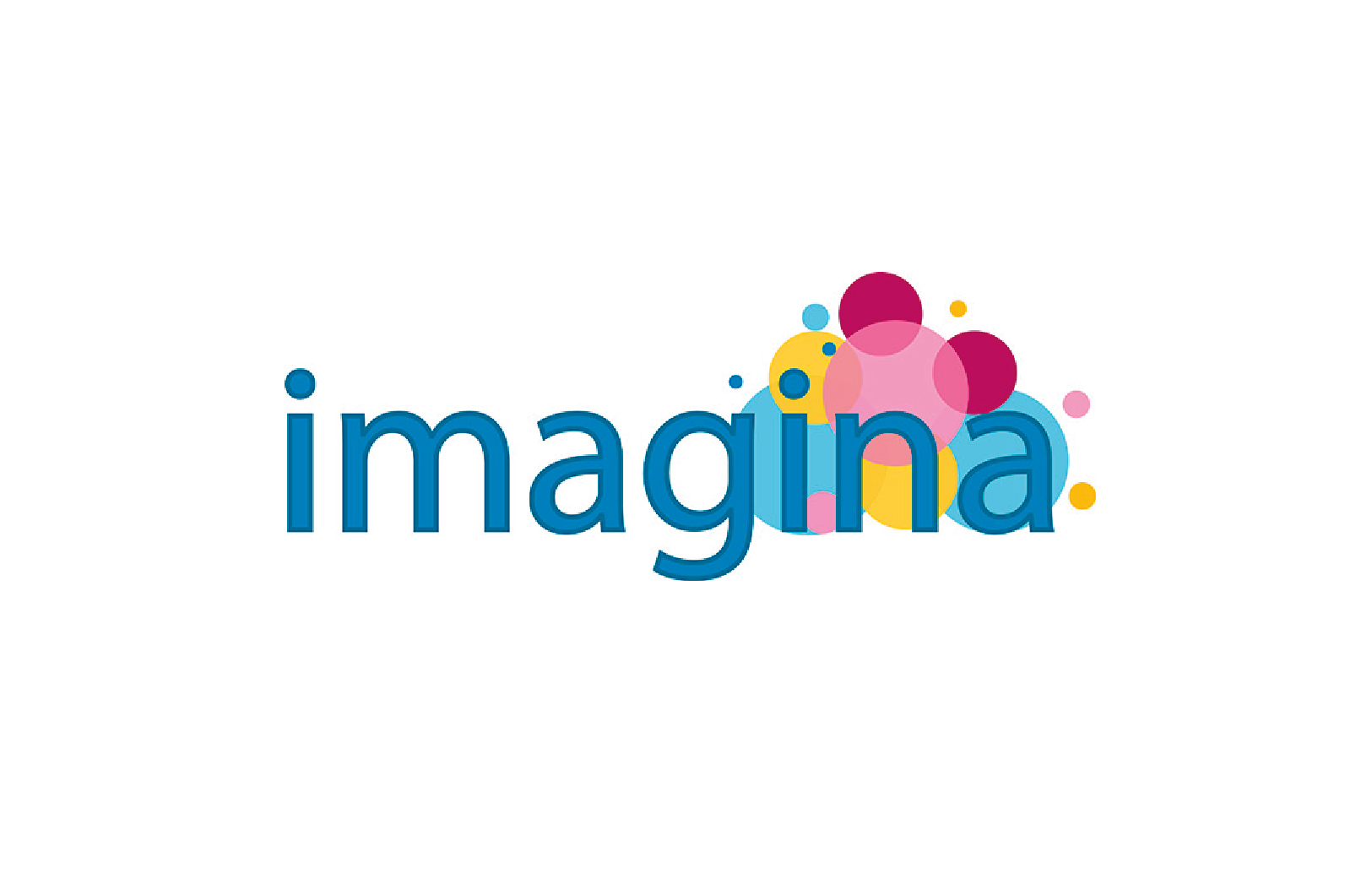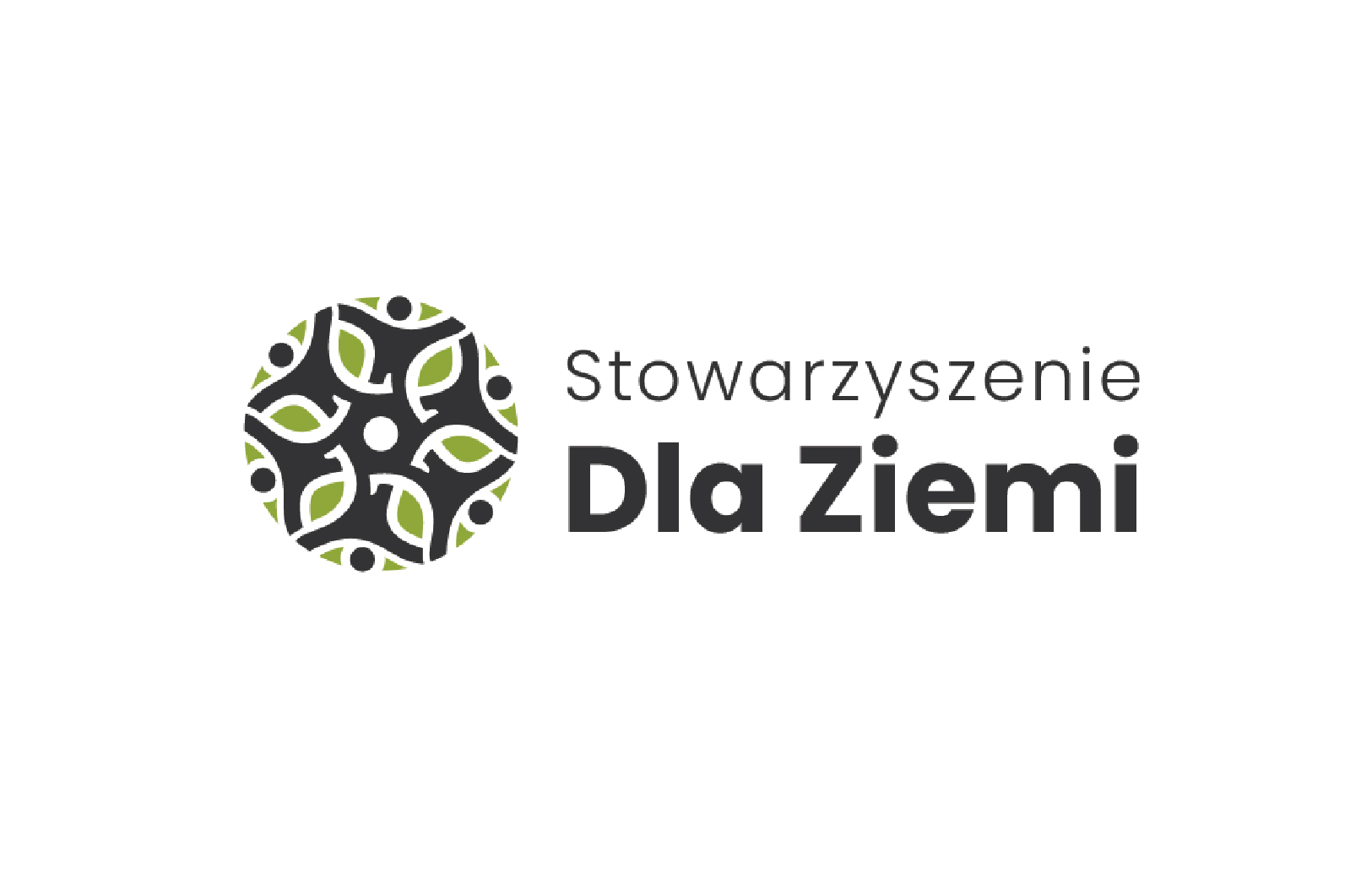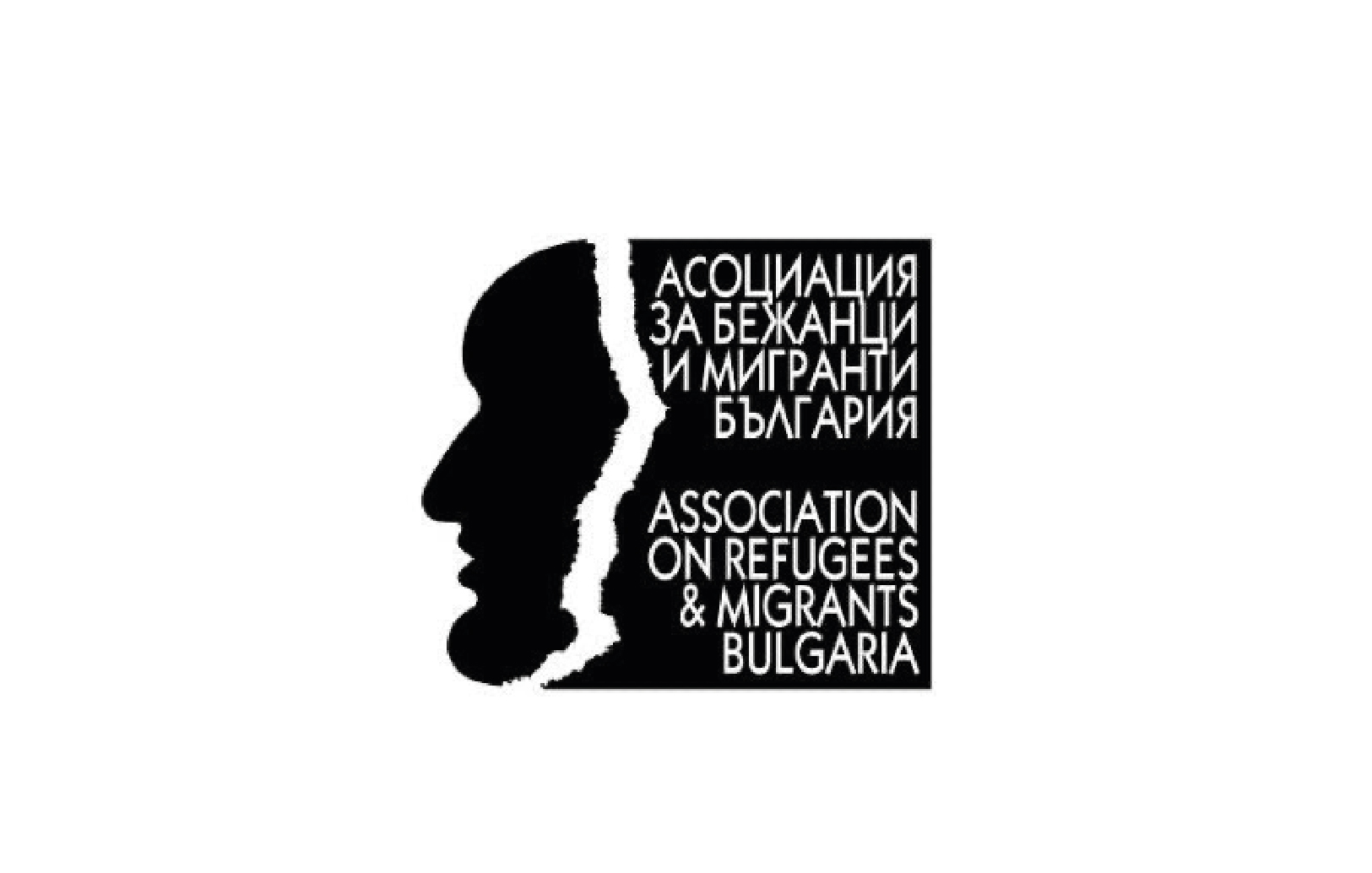
My name is Bikalpa and I originally come from Nepal but am currently living in Copenhagen, Denmark. This month, from January 10th to 13th, I had the opportunity to participate in Train the Trainers workshop in Berlin, Germany, to learn how to facilitate the Anti-Racism and Civic Courage Training (ACCT). This event brought together a diverse group of individuals from the ACCT project partners organizations from five EU countries. I was participating on behalf of Crossing Borders (Denmark) along with my colleagues Andrew (USA/Italy), Maryam (Lebanon/Denmark) and Margaret (Egypt).
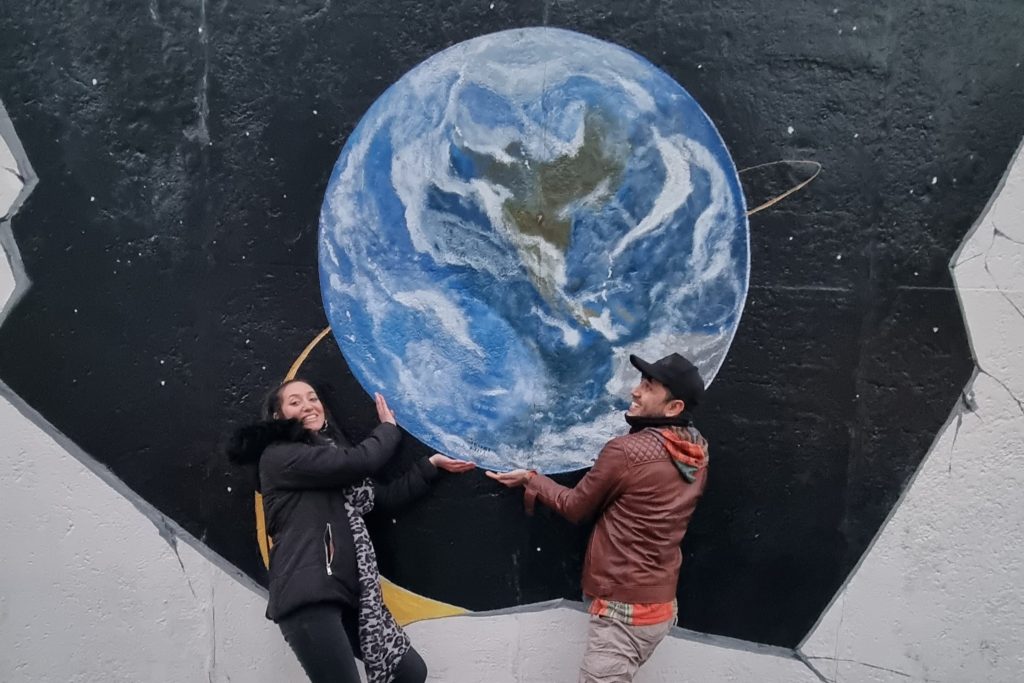
In the ‘Train the Trainers’ event, we dove headfirst into the ACCT Curriculum, a dynamic guide designed to fight discrimination and bolster civic courage. The aim? To turn us into skilled facilitators, ready to adapt these powerful anti-racism tools to our local communities.
Our days flew by while participating in engaging non-formal learning methods – think interactive games, group activities, and lively discussions that knit us into a tight-knit community, all committed to dismantling racism. It was more than just learning; it was experiencing the complex layers of racism, from ingrained prejudices to breaking down the works of systemic oppression.
But it wasn’t all about recognizing the problem. A big part of our journey was understanding civic courage – the guts to stand up against injustice. We delved into the importance of raising our voices, having tough conversations, and championing equality and inclusivity. This training wasn’t just about acquiring skills; it was about sparking a change in us and, hopefully, in our communities
Here I will be sharing some highlight of each day and some activities that we conducted during the workshop:
Day 1
Suna, from Perspekt Initiative, welcomed all the participants and kicked off the workshop with introductions as soon as everyone arrived. Later, participants collaborated to establish workshop guidelines, among the workshop guidelines was to use ‘I’ in a personal perspective, so I am using ‘I’ while giving my opinion in this blog post.
After setting up the guidelines, we dove into the workshop activities, starting with the “Crossing the Lines” method. This was followed by other engaging methods like “Exploring Intention and Effect,” “Reality Show,” and the “Dice Game.” These activities allowed us to explore and discuss different situations related to discrimination, shedding light on individual, structural, and institutional forms of bias. The games were eye-opening, emphasizing that discrimination can occur unintentionally, making it crucial to be mindful of the impact of our words and actions on others. I truly enjoyed participating in each game. Additionally, we worked in groups to deepen our understanding of anti-racism concepts and definitions.
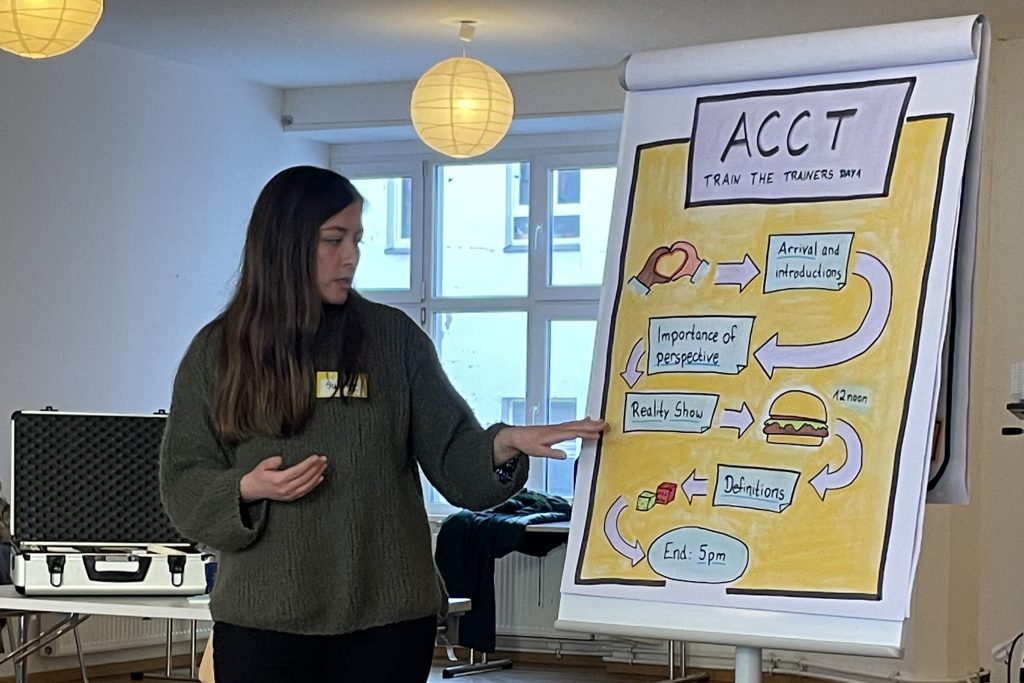
Day 2
The weather in Berlin was colder than the previous day as we arrived at the training venue. With over 20 participants from different countries, we kicked off the day with introductions once again, given the challenge of remembering everyone’s names. Following some energizing exercises, we delved into the workshop with an introduction to a concept called “Theatre of the Oppressed.” Methods like “Columbian Hypnosis,” “Forum Theatre,” and other energizer activities encouraged us to discuss situations where we had experienced acts of discrimination. While presenting each group also chose one situation to turn into a play, reflecting and re-enacting our experiences to overcome negativity and explore alternative actions. The presentation occurred twice: once without intervention and a second time with viewers having the chance to and replace characters, giving a new twist to the situation. This allowed disempowering situations to transform into empowerment and healing, making it a day of valuable learning about power, control, discrimination, racism on different sector and ways to overcome it.

Day 3
Our Airbnb in Berlin was a 20-minute walk from the workshop venue. The streets were slippery due to the cold and light rain. We started Day 3 with a short energizer and began the workshop with the “Railway Reflections” method. This was followed by other methods such as “Stop Rumours,” “Civic Courage Styles,” and “Digital Civic Courage Styles.” The activities on Day 3 focused on encouraging reflection on underlying prejudices and implicit bias while promoting anti-racist interventions. We also discussed in group about rumours, fake news, and stereotypes, learning strategies to dismantle them. The third day of workshop introduced us to various civic courage styles. The trainers also encouraged us to take the first step against racism and discrimination within our networks, as a sample awareness post all the participant organization created a post and published in their respective organization’s social media page.
The Site Visit
Our ACCT training continued with a site visit to the office of the Association for Anti-Discrimination and Educational Work (Bund für Antidiskriminierungs- und Bildungsarbeit), This non-profit organization has been dedicated to providing counseling and training in anti-discrimination and anti-racism since 1996, offering support to those affected by discrimination on various grounds.
Led by the Director and Counsellor, we engaged in a profound and informative session that shed light on the complex realities of discrimination in Germany and beyond. They emphasized the importance of recognizing racism as a complex issue intertwined with social power structures and its intersection with other forms of discrimination. Their presentation highlighted the organization’s efforts to overcome exclusion, discrimination, and counteract all forms of racism. They shared their strategies for empowering individuals to challenge discriminatory practices and advocate for equal opportunities.
It was a fruitful experience, filled with insights from experienced activists who have been providing counselling to individuals facing discrimination based on racist attributions, religion, language, gender, identity, sexual orientation, class, age, disability, and more in Berlin for more than 20 years.
The Train the Trainers Anti-Racism and Civic Courage Training in Berlin was an invaluable opportunity that provided me with a deeper understanding of racism and its pervasive impact on individuals, communities, and societies. It equipped me with the knowledge, skills, and tools to become a more effective anti-racist advocate, committed to fostering a more just and inclusive world.
I am confident that the skills and knowledge I have acquired from this training will enable me to facilitate similar trainings in my community, empowering others to join me in this collective effort for social justice.
By Bikalpa Bibash Basaula





